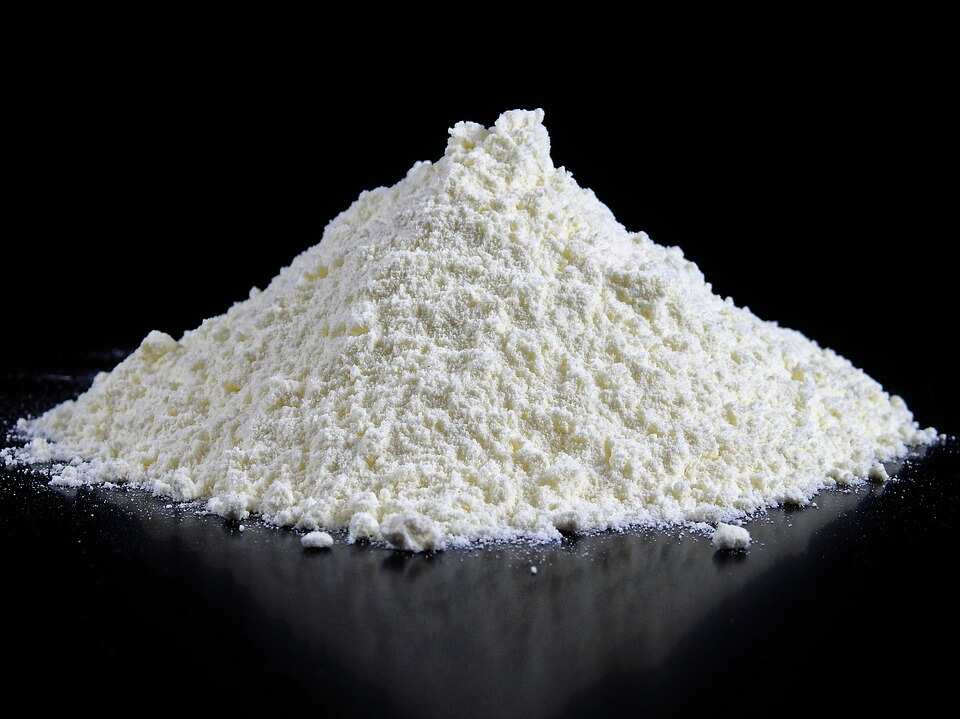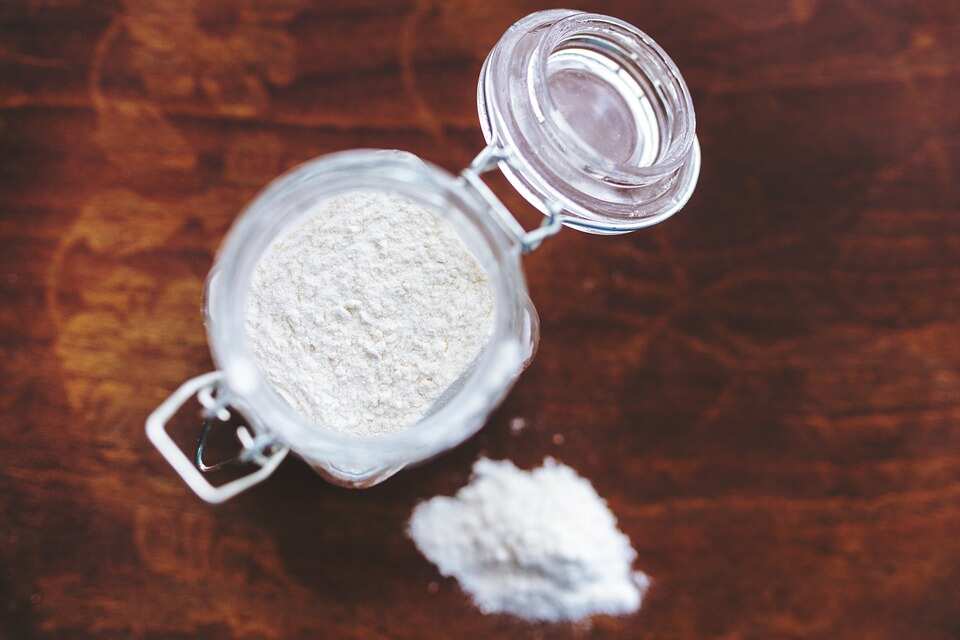Cassava flour production and uses in Nigeria
What do you know about cassava flour? You’ve probably tried some recipes using it, but have you ever wondered how it is produced and what benefits it includes? Today, we will try to highlight all these issues in the article and we hope that we can answer all your questions.

Source: Depositphotos
If you’re into healthy lifestyle and you are interested in making your body look and feel much better, this place is for you. Today, as you already understood, we are talking about cassava flour. We’ll get to know it better, we’ll learn what features it has, what benefits you can get for your health and even the process of the cassava flour production and its uses.
What is cassava?

Source: UGC
Cassava is one of the most important and we can say even “vital” root crops in Nigeria. Its production brings a lot of income for Nigerian farmers and processors. It also contributes for about 45 percent of agricultural GDP of Nigeria. Nowadays, Nigeria produces about 40.000.000 tones of the commodity. Nigerian government is not “happy” about the huge level of import in their country, that’s why they produce that much goods on their own, so that export from their country is bigger than import. And cassava helps here a lot. There is even a national program, and it has a goal to increase the cassava flour production, so that it can be substituted with wheat flour.
The most important thing in producing the cassava flour is its quality. As we said, the main aim is to “replace” the wheat flour with cassava flour. And it has sense. Cassava flour is much healthier to use in cooking, bakery and so on. Although, the main minus in cassava flour production is that the low access to the power hampers production increases the cost of the production itself. That’s why not everybody is able to afford it.
How to make cassava flour

Source: UGC
READ ALSO: Avocado oil uses and benefits
Now, let’s take a look at the process of producing the cassava flour. We’ll describe the basic operations and basic equipment, which is needed for producing this type of flour.
- Process of sorting. All the cassava tubes must be sorted for selecting the wholesome roots. The tubers are weighed.
- Process of peeling. Those parts of cassava are peeled by hands because the mechanical peelers just “waste” big parts of the product because of the irregular shape of this root.
- Process of washing. After peeling, we have to get rid of sand, dirt and some other contaminants and we do it with sufficient quantity of potable water.
- Process of grating. It means that we have to grate the root to cassava mash.
- Process of detoxification. There is a special equipment for such purposes, which is a mash agitator, which eliminates the toxic hydrogen cyanide from the cassava.
- Process of dewatering. For making the flour, the product must be dry, that’s why we should mechanically get rid of 50% of water in the cassava. The other 50% will be gone during the drying process.
- Process of granulation. We should disintegrate cassava into the fine granules by using the hammer mill.
- Process of drying. Drying helps the cassava to get that quality, we were talking about before.
- Process of milling. The flour should be milled until the “right” size, the one we need for the flour to be considered as the high quality cassava flour.
- Process of packaging. The last stage of production, which, as you may guess, is responsible for the packing the flour for putting it on the shelves in food-shops.
As for the raw material, there is nothing more used for producing the flour, except the cassava root itself. But as for the equipment, there are some necessary machinery, that should be on the factory for producing the flour of desired quality:
- Hammer mill
- Starch extractor
- Sedimentation tank
- Hydraulic press
- Granulator
- Flash dryer
- Packaging machine
Cassava flour benefits

Source: UGC
Here comes the question: is cassava flour healthy? It has a bigger price than the usual wheat flour, but does it worth it? What benefits the cassava flour includes and why should we think about replacing all other types of flour with cassava flour?
As, we were talking about the health benefits, let’s take a look at them:
- Gluten, grain, nut-free. Cassava flour includes only one ingredient, which is cassava root. And it is known to be a high-carbohydrate tuber (it is something like yam, taro, or potato). Due to the fact, that it does not have any gluten, grain and so on, we can say that it fits perfectly for vegans, vegetarians and paleo.
- Not poisonous. Naturally, cassava includes something like cyanide compounds in it, but you don’t have to be afraid, because the same potion of these compounds found in almonds or spinach, for example. Yes, these elements may be dangerous for our organisms, but only if eaten raw. And in our case, it’s impossible.
- Not too often. It means that although cassava flour is good for our health, still, we should not use it in every meal and eat it everyday. Cassava flour includes a high level of carbohydrates, which are not too bad, but for people with weight-problems or diabetes there is an issue to think about.
- Neutral flavor. Cassava flour is the most similar one to the wheat flour. Yes, there are many other types of flour like coconut or rice flour and many other. But all of them have their own smell and taste, which sometimes does not “fit” our meal. That’s why using the cassava flour may be a good decision.
Cassava flour uses

Source: UGC
As for the uses of cassava, it is clear that it is used in bakery and cooking. And there are some special tips on how you can use the cassava flour and why it’s better than the wheat flour, which we usually use.
- When you mix the wet ingredients with dry ones, there is one thing you’ll have to do if you use the cassava flour, which is stirring it for a bit longer than with usual wheat flour. Yes, that may seem boring, because none of us likes that long process of stirring, but remember that cassava flour is much better for your health, and the process of stirring it will become much easier.
- Usually, when you finish the baking process, hot backed products are usually having starchy texture, which we all love, and when it’s cooled, it has completely different consistency, and that’s where the cassava flour helps us to get the same texture 5 minutes and even 20 hours after the cooking.
- Also, when using the wheat flour, you’ll get more extract than if you’ve used the wheat flour.
It is a very popular trend nowadays to follow a healthy lifestyle. It is connected to any sphere of our life. Today, we’ve seen how we can make one of the most favorite things as bakery to be much healthier and how we can take care of our body without much efforts and limits. We hope, we answered all your questions about cassava flour, its uses and benefits.
READ ALSO: Miracle seed benefits you should know
Source: Legit.ng




